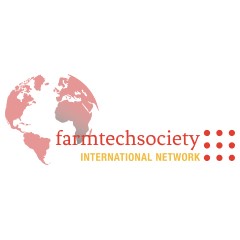The Farm Tech Society (FTS) is an international non-profit industry association that unites and supports the Controlled Environment Agriculture (CEA) industry, seeking to strengthen the sector through the development and implementation of resilient and future proof methods and technologies for indoor growing.
 | November 2024 |
||||||
The Farm Tech Society addresses the need to increase the production for nutritious and healthy food products without damaging the planet, restore the soils and allow new career options and living wages for agriculture professionals.
The association was founded in November 2018 at the urging of multiple stakeholders to create an international umbrella organisation focused on the CEA industry and its practices. FarmTech Society is devoted to shaping sustainable, resilient, competitive and inclusive food production systems globally, by scaling up the CEA industry to fully unlock its multiple benefits, so building a common framework for the industry
The FarmTech Society is enlisted in the EU Transparency Register with #469686733585-87
FTS will also be involved in the conference organisation of the 2023 edition of the conference.
For more information about FTS, go to the website.
The 2023 edition of the Agrifood Innovation Event consists of four topics and and exhibit.
Controlled Environment Agriculture (CEA) Advantages – Growing in a controlled-environment allows for optimizing natural processes and resource efficiency, by combining several key components that help control the process of cultivating plants and other organisms with less space, waste, water usage, along with fewer risks associated (2). This practice uses the domain of intensive agro-ecological production complementing extensive agro-ecological production such as regenerative agriculture, as well as helping with product diversification and income improvements for farmers.
- Climate adaptation & climate mitigation: Improving food safety and quality in an unfavorable, more unstable and polluted environment, by relocating growing practices into protected spaces, which removes major risks and unwanted climate influences and allows integrative circular economy applications to be rediscovered by the agriculture community. Production capacities and supply chains will be de-fossilized and implemented with smart manufacturing regimens, green infrastructure integration, and reduce long supply chain vulnerabilities as well as GHG emissions from the farming sector.
- Predictability and safety, both humans and food: CEA by design enhances food safety, based on tight sanitation and hygiene regimens inherent in the system and supply chain, whilst also implementing the critical agriculture-industry-wide need for improved waste reduction and predictable harvest planning (3). Not only does the farming technology preclude hazardous, exposed and unhealthy labor-practices, but it will also improve agriculture’s image and attractiveness by upgrading and adding technology and science profiles (STEM). Notably, CEA has openly proved its resilience potentials as a prompt local food provider for communities during the Covid-19 crisis (4).
- Circular principles showcase and supply chain stability: CEA provides a strong applied case of integration of various waste streams (nutrients, energy, efficiencies), by utilizing synergies of both existing and newly planned industrial and renewable energy infrastructure development (5 & 6) – closing nutrient cycles, balancing and buffering renewable energy production and reusing former brownfields.

